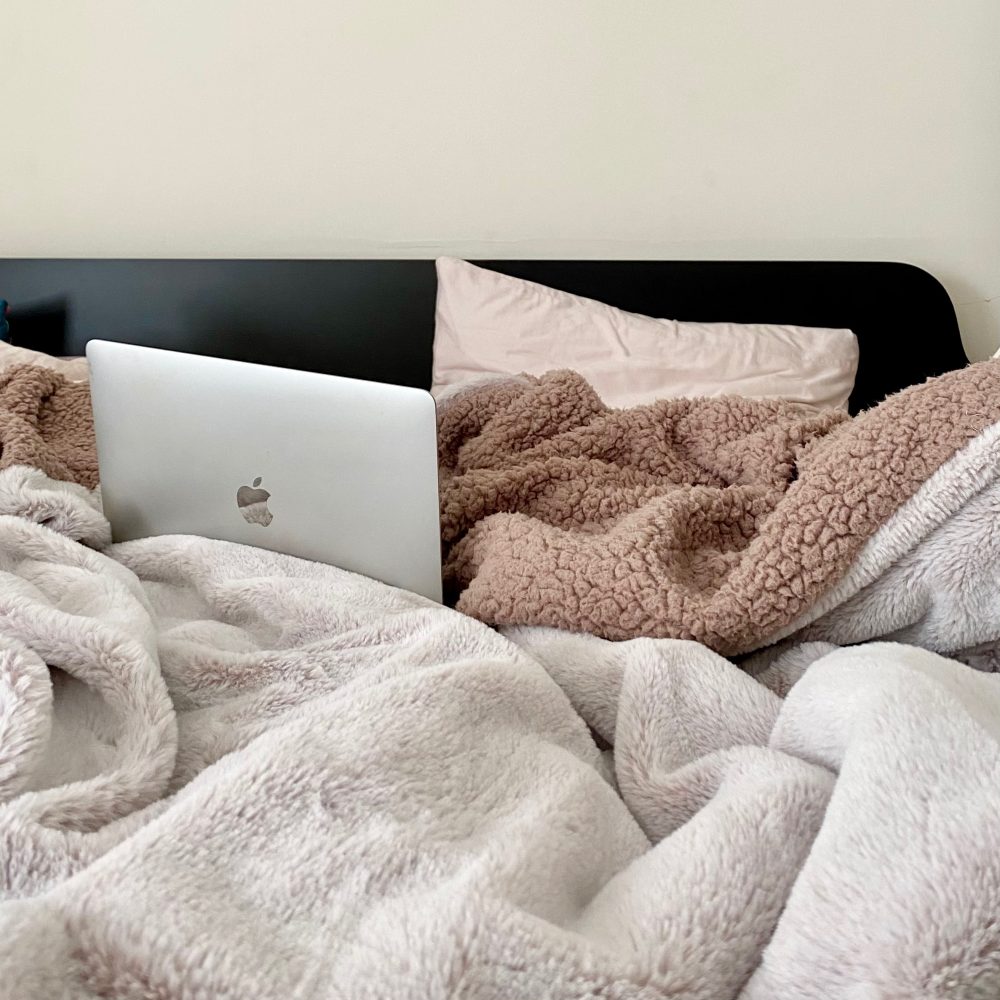The Importance of Your Surroundings
After a slow and comfy weekend at home, I am now excited to start a…
How much do you usually sleep?
Have you ever noticed a shift or change in your day, depending on how much you have slept?
Sleep plays such an important role in our lives. The more sleep deprived we are, the more likely we will lack energy, crave unhealthy foods and become prone to disease.
By getting enough sleep, about 7-8 hours a night, you will notice a shift in your energy, a strengthened immune system, increased creativity & libido, as well as an overall better mood.
Lots is happening in your body while you’re sleeping. Tissue repair and muscle growth happens, which means your internal organs get to rest and to recover. Your brain is consolidating your memory, allowing for storage of new memories, in order for you to take in and learn new information. Meanwhile, also your hormones, that help with your metabolism, appetite & stress, are being released and regulated. This is why sleep is so essential if you’re struggling with a hormone imbalance. With too little sleep, your body is more likely to produce the stress- response hormone cortisol. While some cortisol is very good for us, too much of it can contribute to additional hormone imbalances and even disease.
Do you often feel moody, irritable, fatigue, frequently ill or simply hungry all the time? These can all be signs of sleep deprivation.
Here are some tips for improved sleep:
What I have noticed myself, is that I’m sleeping much better ever since I have been turning off my screens at least half an hour before heading to bed, as well as dimming the lights. The blue light that’s coming off our screens may delay the production of melatonin, a sleep inducing hormone, which makes it more difficult for us to fall asleep. By working on a computer late at night or watching a show, our bodies release the stress hormone cortisol to counteract the melatonin, in order to keep us awake. This may then cause restless nights and you not getting the deep sleep that you need.
The later you eat, the less your body is actually prepared to sleep. By eating a larger meal for lunch and a lighter meal at dinner, we are experiencing the advantage of our body’s natural nighttime repair process. However, if you prefer eating a larger meal at night, try finishing your meal about two to three hours before heading to bed. This will give your body enough time to have started digestion and for you to feel lighter and more at ease when going to sleep.
As mentioned above, blue light can harm your quality and quantity of your sleep, which is why it can be beneficial to remove any electronics or lights from your bedroom. Maybe there are blinking lights from your printer, your router or from the street, that are unconsciously bothering your rest. This is why I like to either remove or turn off all my electronics in the room and close the blinds. The darker the room, the more optimal is your sleep.
You might also noice how different you feel when removing clutter from your room. If you have work stuff laying around, it will remind you of what you still have to get done, which again will lead to stress that counteracts your melatonin. Same as with workout gear or unnecessary clutter. After all, we want your mind to be at ease and still when heading to bed.
By creating a bedtime routine, your body will adjust, meaning that it will start producing melatonin and get you ready for a restful sleep around the same time each day. If you go to bed around 10pm every night, your body will be prepared, knowing that this is when you usually sleep. I personally like to dim my lights, turn on my diffuser and read fiction before sleeping and it totally sets the tone for the rest of the night. I can immediately sense the shift in my body, starting to relax and to prepare for the night. Since I go to bed pretty much at the same time every night, besides on some weekend days, my body knows exactly when it is time to sleep and it listens. Creating certain sleeping habits will not only help you to sleep better, but to create a routine that will bring your day into a flow. A night-time routine is just as important and beneficial as a healthy morning routine.
If you have lots of thoughts right before sleeping, try to focus on your breathing and trust that whatever is on your mind will still be there the next day. However, if you are worried to forget important things that come to mind, keep a journal or a piece of paper next to your bed so you can write it down and relax.
Do you have trouble sleeping or falling asleep?
Do you struggle with finding a balance between all the things you need to get done in a day, while still trying to get enough sleep in?
Reach out to me and together we will explore ways to improve your sleeping schedule and with that your overall health & quality of life.
